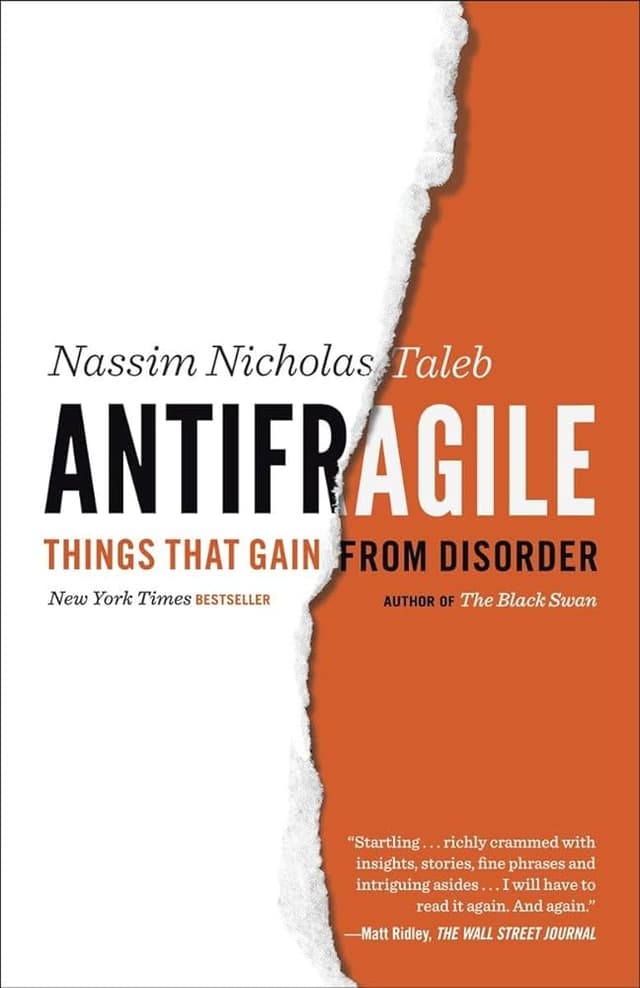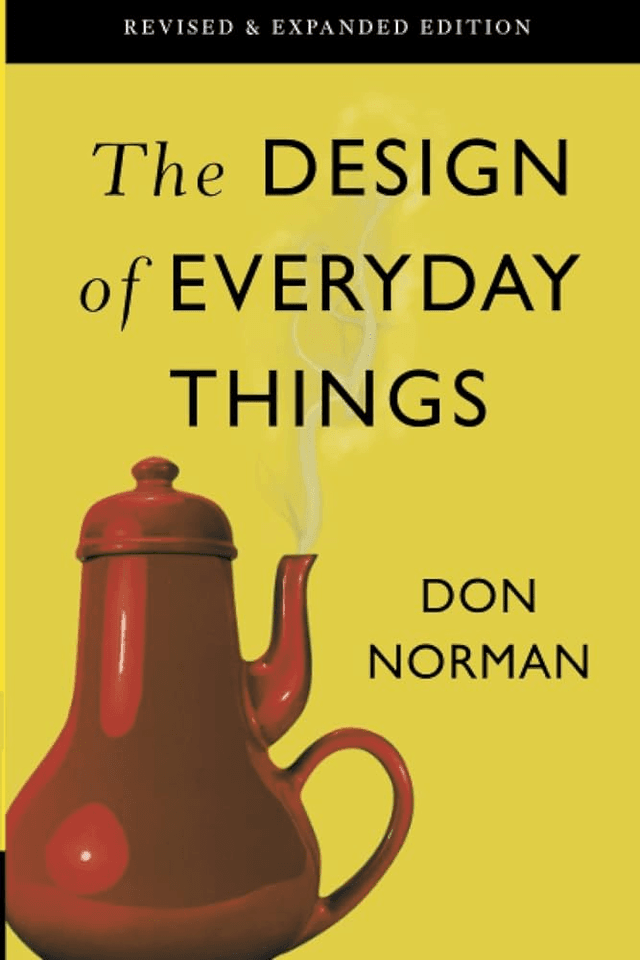Antifragile: Things That Gain from Disorder vs. The Design Of Everyday Things
Antifragile: Things That Gain from Disorder
"Antifragile: Things That Gain from Disorder" by Nassim Nicholas Taleb is a groundbreaking exploration of systems and entities that thrive and grow stronger in the face of stress, volatility, and chaos. Taleb introduces the concept of "antifragility," which goes beyond resilience or robustness. Through a mix of philosophy, practical wisdom, and real-world examples, Taleb illustrates how embracing uncertainty and leveraging disorder can lead to success and innovation. This book is essential for anyone interested in risk management, personal development, and understanding how to benefit from uncertainty and change.
The Design Of Everyday Things
Even the smartest among us can feel inept as we fail to figure out which light switch or oven burner to turn on, or whether to push, pull, or slide a door. The fault, argues this ingenious -- even liberating -- book, lies not in ourselves, but in product design that ignores the needs of users and the principles of cognitive psychology. The problems range from ambiguous and hidden controls to arbitrary relationships between controls and functions, coupled with a lack of feedback or other assistance and unreasonable demands on memorization. The Design of Everyday Things shows that good, usable design is possible. The rules are simple: make things visible, exploit natural relationships that couple function and control, and make intelligent use of constraints. The goal: guide the user effortlessly to the right action on the right control at the right time. The Design of Everyday Things is a powerful primer on how -- and why -- some products satisfy customers while others only f...


Reviews
Reviewed on 2/29/2024
I remember reading Antifragile when it first came out and it made a huge impression. It changed the way I think in plenty of subtle ways. I've been rereading Nassim Nicholas Taleb recently, starting with Black Swan. I really want to reread Antifragile this year too.
Reviews
| Item | Votes | Upvote |
|---|---|---|
| Innovative and original concepts | 1 | |
| Practical applications across various fields | 1 | |
| Engaging and thought-provoking narrative | 1 |
| Item | Votes | Upvote |
|---|---|---|
| Taleb's writing style can be polarizing | 1 |
| Item | Votes | Upvote |
|---|---|---|
| No pros yet, would you like to add one? | ||
| Item | Votes | Upvote |
|---|---|---|
| No cons yet, would you like to add one? | ||
Frequently Asked Questions
'The Design of Everyday Things' focuses on the principles of good design and how to create products that are user-friendly and intuitive. It is a powerful primer on usability, cognitive psychology, and product design. On the other hand, 'Antifragile: Things That Gain from Disorder' delves into the concept of antifragility, which is about systems and entities that thrive under stress and chaos. While it includes practical wisdom, it is broader in scope and not specifically focused on design principles. If your primary goal is to understand design principles, 'The Design of Everyday Things' would be more relevant.
'Antifragile: Things That Gain from Disorder' offers practical applications across various fields, including risk management and personal development, making it useful for those looking to leverage uncertainty and change in different areas of life. 'The Design of Everyday Things' provides practical guidelines specifically for product design and usability. The choice depends on your focus: if you are interested in broad, multidisciplinary applications, 'Antifragile' is more useful; if you are focused on design and usability, 'The Design of Everyday Things' is more practical.
'Antifragile: Things That Gain from Disorder' is noted for its engaging and thought-provoking narrative, introducing innovative concepts that challenge conventional thinking. 'The Design of Everyday Things' is also insightful but is more focused on practical design principles and usability. If you are looking for a book that is more intellectually stimulating and offers a broader philosophical perspective, 'Antifragile' would be the better choice.
'Antifragile: Things That Gain from Disorder' by Nassim Nicholas Taleb is a groundbreaking exploration of systems and entities that thrive and grow stronger in the face of stress, volatility, and chaos. Taleb introduces the concept of 'antifragility,' which goes beyond resilience or robustness. Through a mix of philosophy, practical wisdom, and real-world examples, Taleb illustrates how embracing uncertainty and leveraging disorder can lead to success and innovation. This book is essential for anyone interested in risk management, personal development, and understanding how to benefit from uncertainty and change.
Pros of 'Antifragile: Things That Gain from Disorder' include its innovative and original concepts, practical applications across various fields, and an engaging and thought-provoking narrative. However, a con noted by some readers is that Taleb's writing style can be polarizing.
Nassim Nicholas Taleb is a renowned scholar, statistician, and former trader known for his work on probability, uncertainty, and risk management. He is the author of several influential books, including 'The Black Swan,' 'Fooled by Randomness,' and 'Antifragile.' Taleb's work often focuses on the limits of knowledge and the impact of rare, unpredictable events.
'The Design Of Everyday Things' is a book that explores the principles of good product design. It argues that many common usability issues stem from poor design that ignores the needs of users and cognitive psychology principles. The book emphasizes making controls and functions visible, using natural relationships, and applying intelligent constraints to guide users effortlessly.
The author of 'The Design Of Everyday Things' is Don Norman, a renowned cognitive scientist and usability engineer known for his contributions to the field of design.
'The Design Of Everyday Things' discusses several key principles of good design, including making things visible, exploiting natural relationships between controls and their functions, and using constraints intelligently to guide users towards the right actions.
'The Design Of Everyday Things' is considered a powerful primer on design because it provides clear, actionable guidelines for creating user-friendly products. It explains why certain designs frustrate users and offers practical solutions to make products more intuitive and satisfying to use.



















